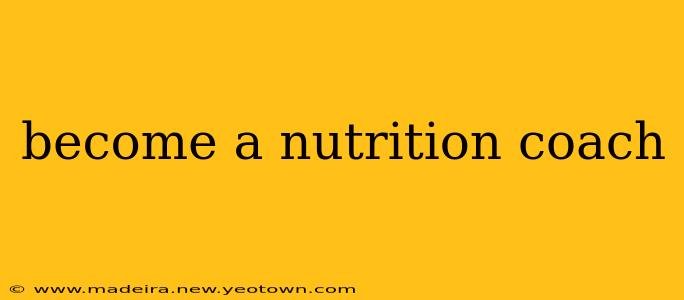The aroma of freshly brewed coffee fills the air as Sarah, a former accountant, meticulously plans her client's meal plan. Her days of spreadsheets are long gone, replaced by the deeply rewarding work of helping others achieve their health goals. Sarah's transformation from number-cruncher to thriving nutrition coach is a testament to the passion and dedication required in this fulfilling field. This is her story, and it's also a guide for you if you're considering this rewarding career path.
What Does a Nutrition Coach Do?
A nutrition coach isn't a registered dietitian or a medical doctor. While they share a passion for healthy eating, their roles are distinct. Nutrition coaches work with clients to create personalized nutrition plans that align with their lifestyles and goals. They offer support, guidance, and accountability, fostering positive behavioral changes. They're educators, motivators, and cheerleaders, all rolled into one. Think of them as a supportive partner on the journey to better health.
How to Become a Certified Nutrition Coach
Becoming a certified nutrition coach involves several key steps. Firstly, education is crucial. While a formal degree in nutrition science isn't always mandatory, many aspiring coaches pursue relevant coursework, including certifications from reputable organizations. These programs often cover topics such as macronutrients, micronutrients, digestive health, weight management, and sports nutrition. Look for programs accredited by organizations like the National Commission for Certifying Agencies (NCCA). Research is key here; ensure your chosen program meets rigorous standards.
Secondly, gaining experience is essential. This could involve internships, volunteering at health clinics, or even shadowing established nutrition coaches. Practical experience helps you understand the nuances of client interaction and the application of theoretical knowledge. Building a strong foundation in client communication is paramount to your success.
Finally, building your business requires marketing savvy. Many coaches establish online presences, utilize social media platforms, and network with potential clients. Consider your target audience – are you focusing on athletes, weight loss, specific dietary needs (like veganism or gluten-free diets)? Tailoring your marketing efforts to your niche will be instrumental in attracting clients.
What are the Different Types of Nutrition Coaching Certifications?
There are numerous certifications available, each with its own focus and requirements. Some programs concentrate on specific populations (e.g., athletes, pregnant women), while others offer a more holistic approach. Research different programs carefully, comparing curricula, accreditation, and the reputation of the certifying organization. Consider factors such as cost, duration of the program, and continuing education requirements. The best certification for you will depend on your individual goals and career aspirations.
What are the Educational Requirements to Become a Nutrition Coach?
While a college degree isn't always mandatory, a background in nutrition, health science, or a related field is advantageous. This provides a strong foundation for understanding complex nutritional concepts and the science behind health and wellness. Many reputable certification programs prefer applicants with some educational background in related fields, even if it's not a four-year degree.
What is the Average Salary of a Nutrition Coach?
The earning potential of a nutrition coach is highly variable and depends on factors such as experience, location, client base, and the pricing structure. Starting salaries can be modest, but with experience and a strong client base, the income potential can be significant. Many coaches supplement their income by offering group workshops, online courses, or creating and selling digital resources.
What Skills Do I Need to Become a Nutrition Coach?
Beyond the educational aspects, several key skills are essential for a successful career in nutrition coaching. These include excellent communication skills, empathy, active listening, strong interpersonal skills, and the ability to build rapport with clients. You should also possess strong organizational skills, time-management abilities, and the capacity to adapt your approach to meet individual client needs. A passion for helping others achieve their health goals is, of course, paramount.
Sarah's journey, while unique, illustrates the path many successful nutrition coaches follow. It requires dedication, hard work, and a genuine passion for improving the health and well-being of others. If you share that passion, the rewards of becoming a nutrition coach can be both personally and professionally fulfilling.

